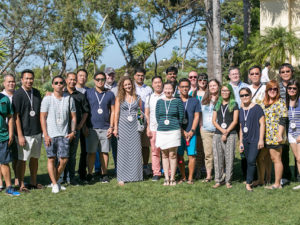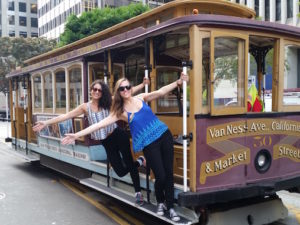
May 10, 2010 was the day I left my cubicle behind to become a freelance e-learning designer/developer. It’s not because I longed to be an entrepreneur. I started freelancing full time because I had lost hope of finding a job where I could have the work/life balance my family and I deserved and the professional fulfillment I craved.
Leaving my traditional job behind felt like reclaiming my independence. But after a year on my own I realized that independence wasn’t quite what I was after.
At the time, I embraced my new independence in lots of ways, big and small. For instance, I relished my newfound ability to take time off around the holidays. For my first year as a freelancer, I actually planned to leave my laptop behind during a family trip.
Then came the reality check: The day before we were due to leave, I got a frantic call from a client. There’d been a misunderstanding and I needed to add some content to the course. When I explained that I wasn’t available to make the changes until after the holiday, the client was furious. Her expectation was that I was her on-demand e-learning developer. When she threatened to cancel the project altogether if I didn’t accommodate her demands, I ended up sacrificing my holiday with my family to smooth things over with the client.
But it wasn’t a total loss. That experience reminded me that independence is about exercising free will—something that paying clients aren’t always keen on doing. The better word for what I was looking for is autonomy. More specifically, I was looking for:
- Opportunities to express my individuality and creativity with work that was challenging and rewarding.
- Flexibility to work in a way that didn’t force me to sacrifice my family, well-being, or personal values.
- Collaboration with people who are at the top of their professional game and absolutely passionate about their crafts.
Articulate hired me because I had these high standards for myself and my employer—not in spite of them. The team honors my experience and accomplishments by treating me like the capable, accountable professional that I am.
Case in point: Before I joined Articulate, I was often asked to create content that wasn’t very helpful to people. It was frustrating because the output of my efforts only satisfied an organizational need—like showing people how to file their timesheets, for instance. It wasn’t work that really helped people grow and learn.
But when I started at Articulate, I was encouraged from day one to draw on my experiences and my understanding of our customers and their jobs to create content and resources that were actually useful.
For instance, I write e-books that help beginners tackle the ever-changing world of e-learning. I write articles that guide new E-Learning Heroes members through the community to help them get the most out of it. And I create templates that save people time and stress, hopefully inspiring them to learn new skills or giving them a starting point to experiment on their own.
In short, I’m free to create anything that helps our customers—and that’s brought me a tremendous sense of purpose and fulfillment.
I’ve found that, for me, “autonomy” hasn’t been about freedom from working, or setting out on my own. It’s been about having the opportunity to do meaningful work that’s challenging and rewarding, while maintaining balance between work and life.



